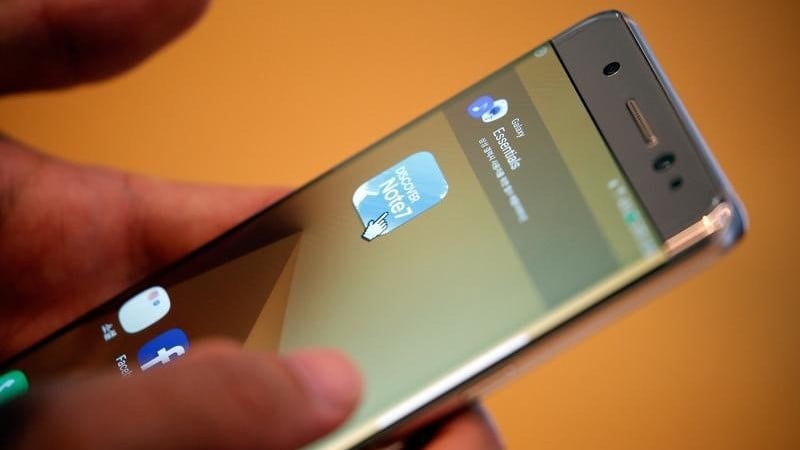
Investigators believe the latest incidents of Samsung smartphones overheating, which prompted it to abandon its Galaxy Note 7 model, may be the result of a flaw different from the one that caused the device’s original recall last month.
Preliminary examination of the evidence from recent battery incidents suggests there is an issue with the batteries made by China’s Amperex Technology Ltd., which were supposed to be a safe alternative to those supplied by another company that led to scores of incidents in which phones burned and melted, according to a person familiar with discussions between government agencies and the company.
The issue may have crept into the supply line after Samsung began replacing Galaxy Note 7 phones that were equipped with batteries made by Samsung SDI, said the person, who wasn’t authorized to speak publicly about the issue. The SDI batteries were slightly too large for the phone, according to a US consumer-safety agency. Samsung is a major shareholder in Samsung SDI.
The apparent new fault helps explain why Samsung would abruptly pull the plug on what was supposed to be its premier phone designed to compete against Apple’s iPhone 7. Amperex, a unit of Japan’s TDK Corp., didn’t respond to requests for comment on Tuesday. Samsung declined to comment.
TDK shares fell as much as 4.5 percent in Tokyo trading. Samsung SDI rose as much as 3.5 percent in Seoul.
Before the September 15 recall, there had been 92 reports of Galaxy Note 7 batteries overheating in the US, with 26 cases causing burns. Samsung and agencies investigating the latest failures haven’t released details about what they believe is causing the incidents.
Samsung is leaving at least some of its most valuable wireless carrier partners in the dark about the root causes of the battery issues, according to one carrier executive who asked not to be named. Samsung is asking some of its partners to share testing data, but the South Korea-based phone maker has not reciprocated with its own data, leaving carriers to deal with replacing phones and not providing customers with explanations of the problem, the executive said.
Reversed course
Samsung moved to recall its phones last month, offering replacements that it assured consumers were safe. Samsung reversed course this week after several of the replacement phones caught fire, shutting down production and asking retailers to stop selling all of the Galaxy Note 7s.
The move sent Samsung shares down 8 percent on Tuesday, vaporizing $17 billion in market value. Samsung’s sterling brand image built up over decades is at risk unless the management team led by Vice Chairman Jay Y. Lee, 48, doesn’t get out in front of the crisis soon.
The company has not said how many new or replacement phones will be affected by the latest announcement. Analysts estimated the original recall would cost between $1 billion and $2 billion, but that figure will likely rise. Chung Chang Won, an analyst at Nomura Holdings Inc., estimated in a research note before the company’s announcement the worst-case scenario of Samsung terminating the Galaxy Note 7 would cost the company about $5 billion in operating profit through 2017.
The incidents in the US are under investigation by the Consumer Product Safety Commission, which Monday issued a statement warning all owners of Galaxy Note 7s to power them off and stop using them.
When the agency announced an agreement with Samsung to begin a government-sanctioned recall on September 15, Chairman Elliot Kaye said batteries made by Samsung SDI had been built slightly too large for the compartment in the phone. Installing them had crimped the corner of the batteries, causing them to short circuit and overheat, Kaye said.
[“source-ndtv”]










